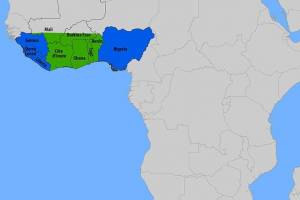Lassa Fever Vaccine
Lassa Fever Vaccine Candidates 2025
The U.S. Food and Drug Administration (FDA) and the European Medicines Agency (EMA) have not approved Lassa fever virus (LASV) vaccines as of March 2025. Four Lassa fever vaccine candidates (LASSARAB, INO-4500, MV-LASV, rVSV∆G-LASV-GPC, and EBS-LASV) have entered the clinical trials.
Given its potential to cause a public health emergency of international concern, LASV is included in the World Health Organization (WHO) R&D Blueprint of priority pathogens for which there is an urgent need for accelerated research, the development of vaccines, and countermeasures. The WHO has ranked Lassa (arenaviruses) as the most likely animal virus to spill over into humans ahead of Ebolavirus. A detailed estimate of the damage done by LASV outbreaks published in August 2024 has found that it infects 2.7 million people a year, ten times more than health agencies had assumed. Research indicates that deploying a safe and effective Lassa vaccine across 15 countries in western Africa could save nearly 3,300 lives over ten years. The
International AIDS Vaccine Initiative (IAVI) LASV vaccine candidate is conducting a Phase 2 (IAVI C105) Randomized, Double-Blinded, Placebo-Controlled Clinical Trial to Evaluate the Safety, Tolerability, and Immunogenicity of rVSV∆G-LASV-GPC Vaccine in Adults and children living in West Africa. As of August 26, 2024, Ghana, Liberia, and Nigeria are all vaccinating volunteers. The Coalition for Epidemic Preparedness Innovations supported a Phase I (IAVI C102) clinical trial. Batavia BioScienes manufactured the IAVI's LASV vaccine candidate in Leiden, the Netherlands.
rLASV/IGR-CD, from the Texas Biomedical Research Institute, The Scripps Research Institute, and the National Institute of Allergy and Infectious Diseases, includes both determinants of attenuation and further enhances the vaccine's safety. Data published in November 2024 support the development of rLASV/IGR-CD as a live-attenuated LF vaccine with stringent safety features.
The Lassa fever vaccine candidate LASSARAB uses a deactivated rabies virus platform to deliver antigens to protect against the Lassa fever virus. Researchers from Thomas Jefferson University and the University of Maryland Baltimore have developed LASSARAB in collaboration with the United States Army Medical Research Institute of Infectious Diseases and the Geneva Foundation. The phase 1 study's primary completion date is 2026-03.
ChAdOx1-Lassa-GPC is a chimpanzee adenovirus-vectored vaccine candidate encoding the Josiah strain LASV glycoprotein precursor gene.
Themis Bioscience GmbH is a recombinant, live-attenuated, measles-vectored Lassa fever vaccine candidate (MV-LASV). In a first-in-human phase 1 trial, MV-LASV (V182-001) showed an acceptable safety and tolerability profile, and immunogenicity was unaffected by pre-existing immunity against the vector.
Inovio discontinued the development of product candidates targeting Lassa Fever (INO-4500) on November 17, 2022.
Lassa Fever Overview
Lassa fever (LF) is an acute viral hemorrhagic fever (VHF) caused by the Lassa virus. The natural reservoir for the LASV is the Mastomys natalensis rodent (African rat). Lassa virus is endemic in the West African countries of Benin, Ghana, Guinea, Liberia, Mali, Nigeria, and Sierra Leone.
Lassa Fever Vaccine News
December 16, 2024 – A vaccine candidate against the Lassa virus completely protected guinea pigs exposed to an otherwise lethal dose of the virus, reported researchers from Texas Biomedical Research Institute, The Scripps Research Institute, and The National Institute of Allergy and Infectious Diseases.
January 4, 2024 - Research findings defined a prefusion-stabilized GPC trimer, revealed an apex-situated site of vulnerability, and demonstrated that a cleavage-intermediate LASV trimer elicits LASV-neutralizing responses.
August 24, 2023 - Imunon, Inc. entered into a Cooperative Research and Development Agreement with the National Institute of Allergy and Infectious Diseases to evaluate the immunogenicity and efficacy of two IMUNON DNA-based Lassa vaccine candidates.
March 16, 023—The Lancet published a study that concluded that MV-LASV showed an acceptable frequency and tolerability and that immunogenicity seemed unaffected by pre-existing immunity against the vector.
August 31, 022 – IAVI announced that volunteers at the PREVAIL clinical trial site at Redemption Hospital in Monrovia, Liberia, have been vaccinated with its novel vaccine candidate against LASV in a Phase 1 clinical trial.





